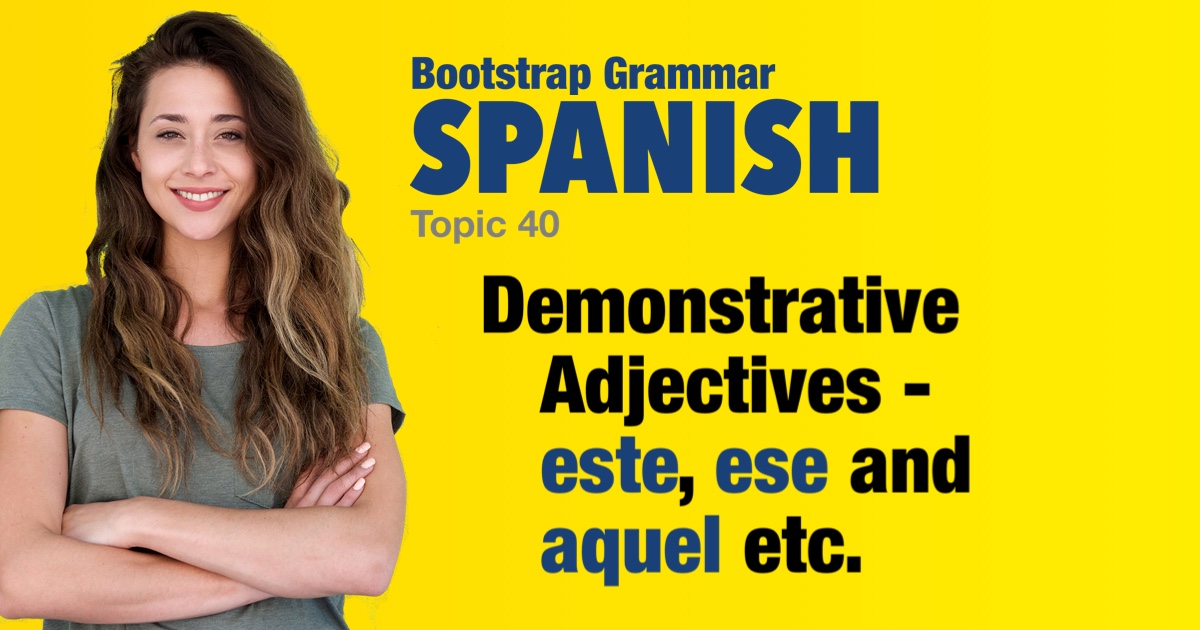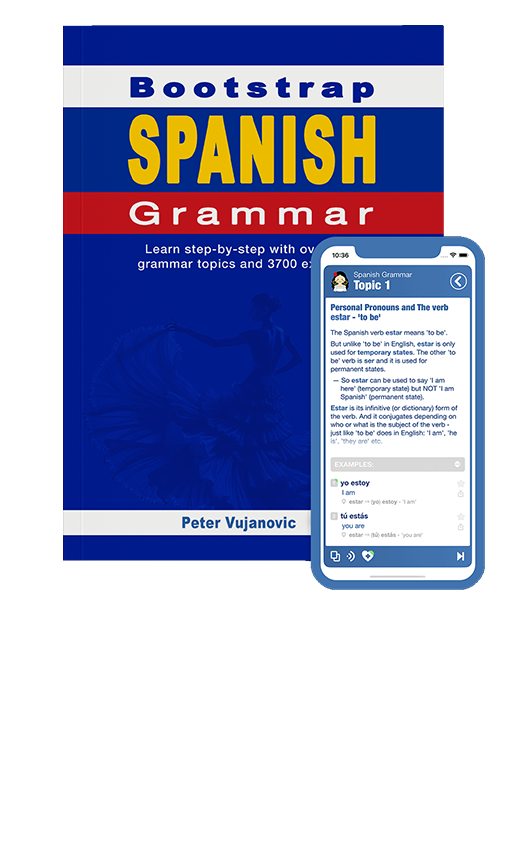Spanish grammar - Demonstrative Adjectives - este, ese and aquel etc. |
|||
|
|||
Demonstrative adjectives are used to point out specific people or things and show their relative distance from the speaker or time in the conversation. In Spanish, there are three sets of demonstrative adjectives that correspond to different levels of proximity: close to the speaker, close to the listener, and far from both. To refer to things close to the speaker: • este (masculine, singular) - 'this' • esta (feminine, singular) - 'this' • estos (masculine, plural) - 'these' • estas (feminine, plural) - 'these' Likewise for close to the listener: ese, esa, esos and esas. Likewise for far from both speaker and listener: aquel, aquella, aquellos and aquellas. These must agree in gender (masculine or feminine) and number (singular or plural) with the nouns they modify. And they are placed before the noun they modify. |
| Examples: | |
|
Esta chica es muy inteligente.
This girl is very smart.
|
|
|
¿Esta chica es estudiante?
Is this girl a student?
|
|
|
¿Este tren va a San Sebastián?
Does this train go to San Sebastian? |
|
|
Estos turistas van a Salamanca.
These tourists are going to Salamanca.
|
|
|
Aquellas montañas son muy altas.
Those mountains (over there) are very high.
|
|
|
Estos estudiantes vienen a clase pronto.
These students come to class early.
|
|
|
Estos zapatos son bonitos, pero caros.
These shoes are nice but expensive.
|
|
|
Aquel maestro es muy estricto.
That teacher (over there) is very strict.
|
|
|
¿Estas manzanas están frescas?
Are these apples fresh?
|
|
|
Yo quiero esta flor roja, por favor.
I want this red flower, please. |
|
|
¿Quién quiere aquella gran porción de pizza?
Who wants that (over there) big slice of pizza?
|
|
|
Hay un hombre curioso en esta historia.
There is a curious man in this story.
|
|
|
El gato va a aquella habitación.
The cat goes to that (over there) room.
|
|
|
Aquellos niños son lindos, pero insoportables.
Those kids (over there) are cute but insufferable.
|
|
|
¿No es extraño el color de estos zapatos?
Isn't the color of these shoes strange?
|
|
|
Esta tienda es nueva pero este barrio es muy antiguo.
This shop is new (just opened) but this neighborhood is very old.
|
|
|
Ella quiere un apartamento grande y bonito en Granada.
She wants a big and nice apartment in Granada.
|
|
|
Aquella casa es la antigua casa del gran escritor Cervantes.
That house (over there) is the former home of the great writer Cervantes.
|
|
|
Aquel coche es rápido, ¿verdad?
That car is fast, right (truth)?
|
|
|
Estas flores en aquel jarrón son hermosas.
These flowers in that vase (over there) are beautiful.
|
|
 |
|



